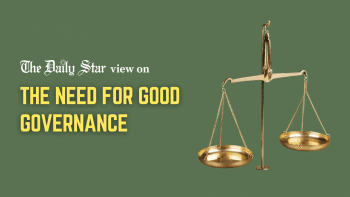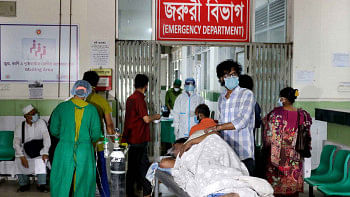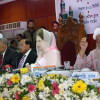Health sector needs attention on an urgent basis

A Prothom Alo report on the politicisation of the public health sector portrays a grim picture of how far the rot has spread. The report details how partisanship has pervaded the sector—from medical academia to healthcare services to projects under the health ministry—ensuring absolute dominance of the erstwhile ruling party. But Awami League was not the only one to have spread its tentacles; BNP also did the same while in power, and it seems the party is trying to do it again after the fall of the former.
Reportedly, after forming government in 2009, Awami League and its affiliates placed loyal officials in various health-related institutions. One example is the Bangabandhu Sheikh Mujib Medical University (BSMMU), where five consecutive vice-chancellors appointed since 2009 have either been a member of pro-AL Swadhinata Chikitsak Parishad (Swachip) or directly involved with AL politics. The same goes for pro-VCs, proctors and others in top positions. Political recruitments were also seen at 37 other public medical colleges. Elsewhere, at the 495 upazila health complexes, only officials loyal to AL were appointed as upazila health officers. Thus, loyalists were favoured in leadership positions at every level of the public healthcare sector—from the grassroots to the top—whether they were qualified or not. In the process, AL deprived anyone with suspected links to BNP and even deserving nonpartisan candidates.
During BNP's rule in 2001-2006, it was the pro-BNP Doctors Association of Bangladesh (DAB) that dominated public-sector recruitments, choosing party loyalists in important positions, and thus depriving those even remotely affiliated with AL and its politics. During the times of both regimes, those who were not affiliated with either party or their politics have suffered, and the lack of competent leadership eventually plunged the sector into an unprecedented crisis.
In the aftermath of Sheikh Hasina's fall, it seems BNP is focused on repeating the same cycle. As many as 173 doctors who were recruited in BNP's time, and deprived of promotions throughout the AL rule, were all promoted in one day—on August 8. The Prothom Alo report suggests that the spate of promotions is still going on. Frustrated DAB members are cornering relevant authorities, staging protests in various medical institutions, and in some cases even vandalising public hospitals.
We understand the frustration of pro-BNP doctors and medical professionals, but their attempt to forcefully claim what they think they deserve cannot be acceptable. Political partisanship is one of the root causes behind the ailing public health sector, and it's time to do away with it. Otherwise, much-needed reforms in the sector will continue to elude us. To restore discipline in this vital sector, we urge the interim government to be strict and judicious about all appointments and promotions. Only those who are qualified and deserving should get preference.

 For all latest news, follow The Daily Star's Google News channel.
For all latest news, follow The Daily Star's Google News channel. 










Comments